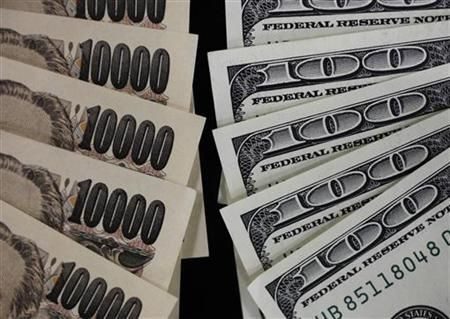Japan’s Faltering Business Condition Persists

Japan’s business conditions in the manufacturing sector continue to falter, indicating that the weak global economic situation is affecting the country’s economy.
According to the data released by the Bank of Japan Friday, the Tankan Large Manufacturing Index dropped to -12 in the October-December quarter from -3 in the previous quarter.
“Looking at the industry breakdown of business conditions DI among large firms, sentiments especially deteriorated among machinery manufacturers as represented by transportation machinery in manufacturing sector and deterioration in sentiments was clearly seen for retail, construction, and personal service industry in non-manufacturing sector. The results give an overall snap shot of sluggish economic conditions due to the combination of prolonged period of global economic slowdown, appreciation of the currency, and level-off in policy stimulus,” Credit Agricole said in a note.
Meanwhile, the capital expenditures projection for the fiscal year 2012 was revised to 6.8 percent from the previous forecast of 6.4 percent.
This report comes after it was reported that Japan's gross domestic product contracted in the third quarter in comparison to that in the previous quarter due to the soft global demand and the weakening domestic consumption in the world's third-largest economy.
According to the revised data released earlier this month by the Cabinet Office, Japan’s GDP, which measures the annualized change in the inflation-adjusted value of all goods and services produced by the economy, shrank to 0.9 percent in the quarter ending Sept. 30 from a 0.1 percent rise in the previous three months.
Japan reported last month that the retail sales fell in October compared to those in the same month last year, indicating a faltering of consumer spending, which accounts for the majority of overall economic activity. The data released by the Ministry of Economy, Trade and Industry show that Japan’s retail sales, which measure the total value of inflation-adjusted sales at the retail level, fell 1.2 percent in October from those in the same month a year earlier, down from a 0.4 percent rise in September.
The continuing debt crisis in Europe and a strong yen have also hurt the demand for exports, the key driver of Japan's economy. Investors see an urgent need for the policymakers to evolve measures that strengthen the growth potential of the economy, which many expect to be announced after the elections in December.
With Japan's gross domestic product contracting in the third quarter in comparison with that in the previous quarter, the policymakers are under pressure to further ease the monetary policy.
© Copyright IBTimes 2024. All rights reserved.





















